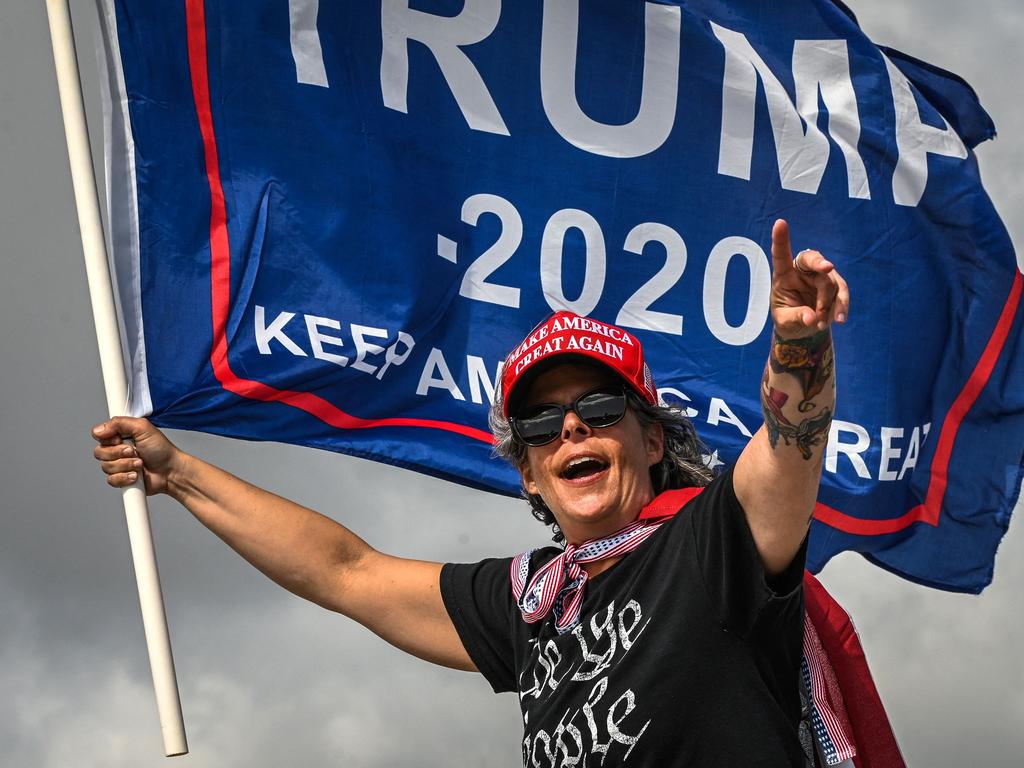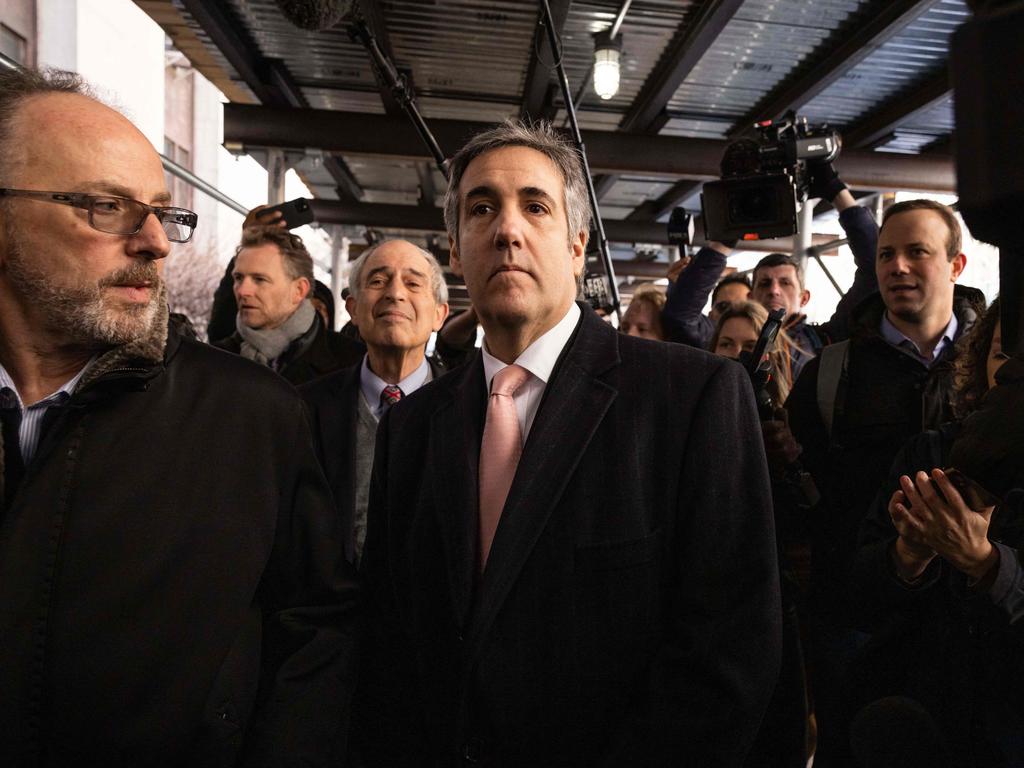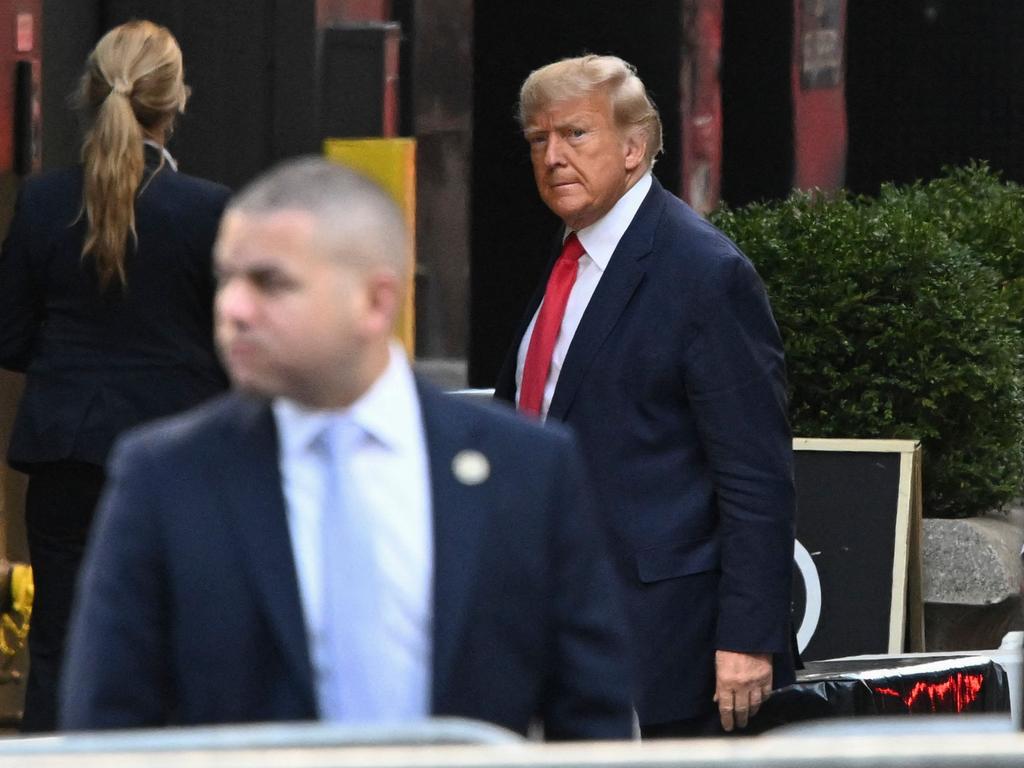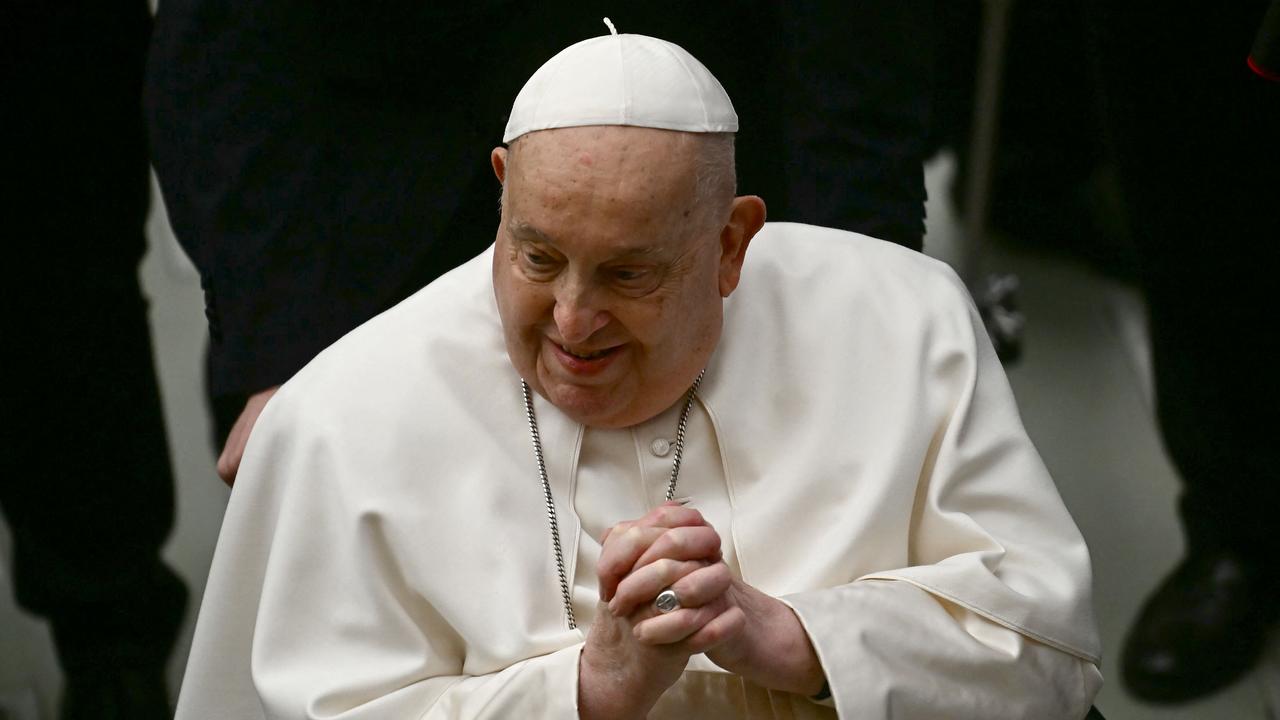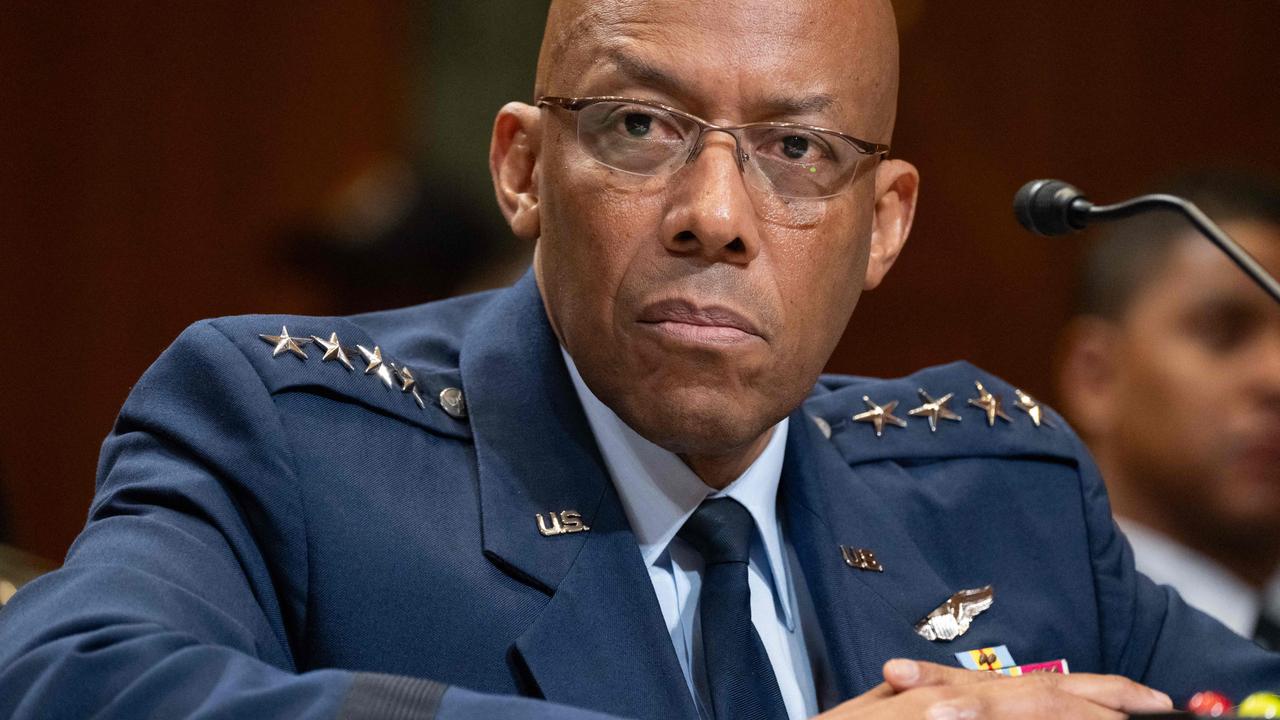Donald Trump faces 34 felony charges in hush-money case
Donald Trump is charged with 34 felony violations of falsifying records to hide hush-money paid to suppress potentially damaging sexual allegations during his 2016 campaign.
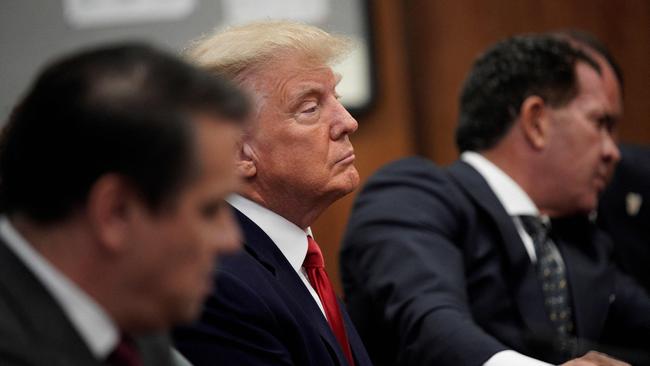
Donald Trump was charged with 34 felony counts of falsifying business records as part of what Manhattan prosecutors described as an orchestrated scheme to influence the 2016 presidential campaign by paying hush money to suppress potentially damaging sexual allegations.
During an hourlong court appearance Tuesday afternoon, a stone-faced Mr. Trump pleaded not guilty to the charges, brought by Manhattan District Attorney Alvin Bragg, who sat a row behind the team of prosecutors handling the case.
Read the full Donald Trump indictment
Read the Prosecutor’s statement of facts
Assistant District Attorney Catherine McCaw said prosecutors intended to request a trial starting in January 2024, the same month that the Republican presidential primary will begin and 10 months before the general election. A lawyer for Mr. Trump indicated Mr. Trump’s team would push for later in the spring.
After New York authorities booked and fingerprinted him, Mr. Trump, 76 years old, entered his plea in a Manhattan courthouse, sitting between his lawyers with his hands clasped on a table. His brow furrowed, he ignored shouted questions as he entered and exited the courtroom.
Speaking outside the courthouse after the hearing, Mr. Trump’s legal team said the charges were disappointing and devoid of any factual allegations that the former president committed any crime. “It’s sad, and we’re going to fight it,” said Trump lawyer Todd Blanche.
Mr. Trump has called the case brought by Mr. Bragg, a Democrat, politically motivated and has said a fair trial in the largely Democratic city of 8.5 million people would be impossible.
In a 13-page statement of facts that accompanied Mr. Trump’s indictment, prosecutors wrote: “The defendant DONALD J. TRUMP repeatedly and fraudulently falsified New York business records to conceal criminal conduct that hid damaging information from the voting public during the 2016 presidential election.” They said Mr. Trump and others violated election laws, falsified business records and mischaracterized payments for tax purposes.
Prosecutors said Mr. Trump “orchestrated a scheme” with others to influence the 2016 election, beginning with an August 2015 meeting in which then-American Media Inc. chief executive David Pecker offered to be his “eyes and ears” by alerting Mr. Trump’s lawyer, Michael Cohen, to any negative stories about the candidate before they were published.
Prosecutors referenced three payments made on Mr. Trump’s behalf: $130,000 paid to porn star Stormy Daniels by Cohen; $150,000 paid to former Playboy model Karen McDougal by American Media Inc., the parent company of the National Enquirer; and $30,000 paid by American Media to a former Trump Tower doorman who alleged Mr. Trump had fathered a child out of wedlock. Ms. Daniels and Ms. McDougal both alleged sexual encounters with Mr. Trump a decade earlier.
Mr. Trump, who denies the sexual encounters, later reimbursed Mr. Cohen for the payment to Ms. Daniels in monthly increments disguised in the Trump Organization’s books as legal expenses, according to prosecutors.
The filings revealed few major new details about Mr. Trump’s involvement in the hush- payment scheme, which prosecutors in multiple offices have been investigating for at least five years.
Asked why he didn’t bring the charges earlier, Mr. Bragg told reporters at a news conference following the arraignment: “I bring cases when they’re ready.” He said his office had gathered additional evidence that prosecutors didn’t have before his tenure.
“These are felony crimes in New York state, no matter who you are,” he added, calling the charges the bread and butter of his office’s white-collar work.
Justice Juan Merchan set Dec. 4 as the next court date in the case. Mr. Blanche said the defense might request that Mr. Trump not appear, due to the burdens and expense to the city.
The judge said defendants are expected to appear in court. “At this time I’ll deny your application,” he said.
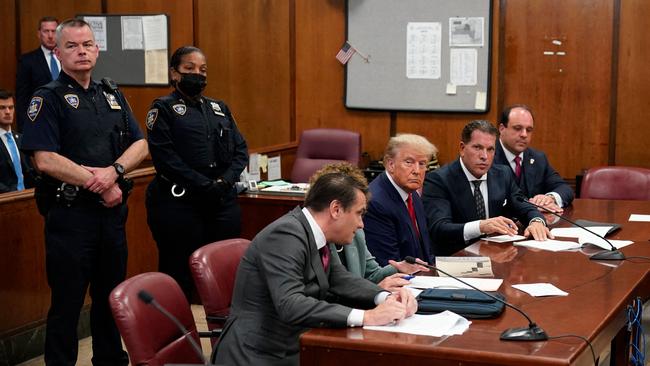
Assistant District Attorney Christopher Conroy said his office had “significant concerns” about inflammatory social media posts by Mr. Trump ahead of his arraignment, saying they posed a threat to the city, the district attorney and the grand jury. Mr. Conroy cited one post in which Mr. Trump forecast “death & destruction” in response to his indictment.
Mr. Blanche said Mr. Trump’s posts were a product of his frustration at the publicity surrounding the investigation, including a former prosecutor’s book and Mr. Cohen’s media appearances.
Justice Merchan told Mr. Blanche that he didn’t “share your view that his language is justified by frustration,” but said he wouldn’t impose a gag order, even if it were requested. The judge asked Mr. Trump to refrain from comments that had the potential to incite violence.
The charges against Mr. Trump provide the first public view of a case that Mr. Bragg’s office began presenting to a grand jury in late January. The grand jury voted to indict Mr. Trump on Thursday. Not since a police officer stopped Ulysses S. Grant for speeding in his horse-drawn buggy in 1872 has a current or former president been arrested.
The indictment could solidify Mr. Trump’s standing among GOP voters -- several recent polls show his lead in the 2024 primary widening. But it could also serve to remind swing voters of the constant controversy that surrounds him. The former president is facing investigations into the Jan. 6, 2021, Capitol riot by a mob of his supporters to interfere with the certification of President Biden’s victory, and separate attempts to overturn his election defeat in Georgia, as well as his handling of classified documents at his Florida resort. He denies wrongdoing.
Manhattan prosecutors painted a picture of Mr. Trump as a candidate eager to suppress negative stories about his campaign but unwilling to spend his own money to do so. In October 2016, after a damaging tape was leaked showing Mr. Trump in 2005 talking about groping women, Mr. Trump and his aides were concerned about his “viability as a candidate,” prosecutors said.
When Mr. Cohen negotiated a deal with a lawyer for Ms. Daniels to buy her silence, however, Mr. Trump directed him “to delay making a payment to [Ms. Daniels] as long as possible,” instructing him that “if they could delay the payment until after the election, they could avoid paying altogether, because at that point it would not matter if the story became public,” prosecutors said. He ultimately signed off on the payoff, asking Mr. Cohen and then-Trump Organization chief financial officer Allen Weisselberg to “find a way to make the payment” and agreeing to pay Mr. Cohen back.
The indictment says Mr. Trump falsified the records “with intent to defraud and intent to commit another crime and aid and conceal the commission thereof.” Mr. Cohen’s payment to Ms. Daniels “was illegal,” the statement of facts said, noting that Mr. Cohen pleaded guilty in 2018 to violating federal campaign-finance law in connection with the payment. Mr. Cohen is expected to be a chief witness for the Manhattan district attorney’s office if the case goes to trial.
In Mr. Cohen’s federal case, prosecutors alleged that the payments to Ms. Daniels and Ms. McDougal violated a cap on donations by individuals and a ban on corporate contributions, respectively.
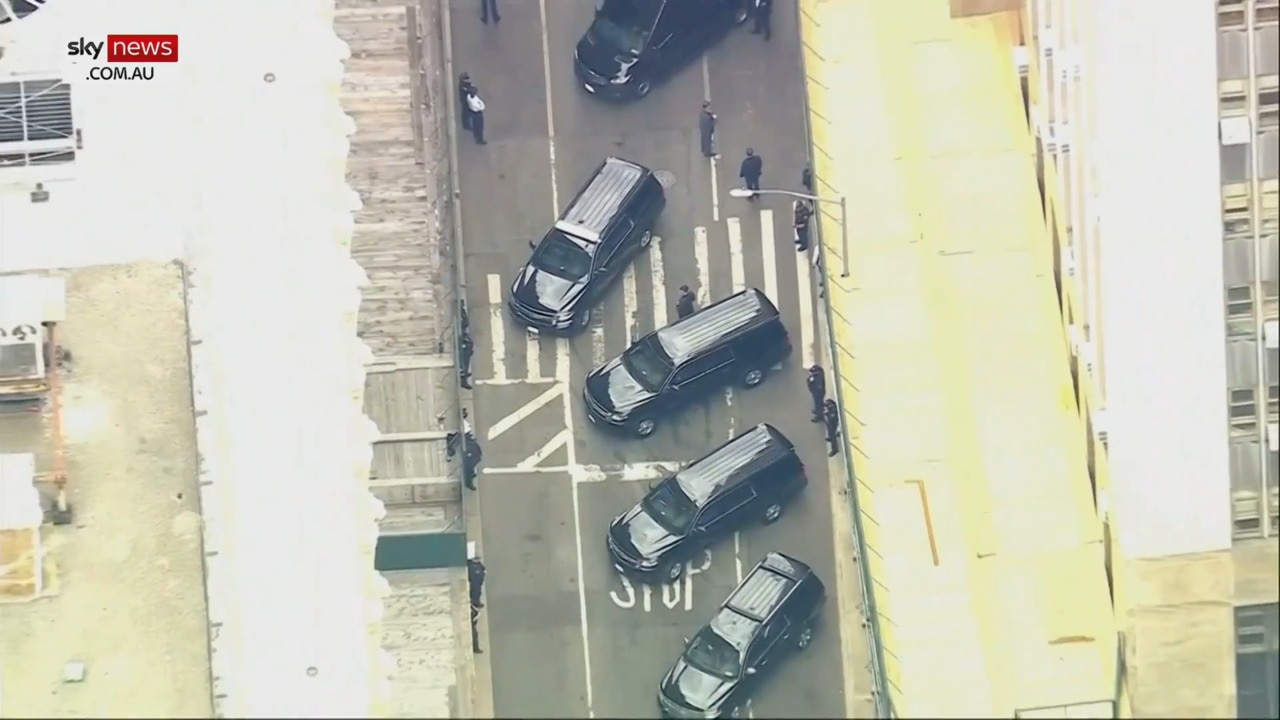
The payments, prosecutors said, were the legal equivalent of Mr. Cohen and publisher American Media giving money directly to Mr. Trump’s campaign, because they were made in coordination with Mr. Trump and intended to help him win the election.
Mr. Trump’s alleged effort to conceal a campaign-finance crime elevated what would have otherwise been misdemeanor accounting-fraud charges to felony charges. The challenge for Mr. Bragg’s office is that no New York court has ruled that state prosecutors can premise a felony charge of falsifying business records on concealment of a federal campaign-finance crime.
Mr. Trump’s lawyers have indicated that they will try to get the charges dismissed. Failing that, they will have to prepare Mr. Trump for a trial that could unfold during the height of the 2024 presidential campaign. His lawyers have said a plea deal is out of the question.
The case will remove Mr. Trump from the campaign trail for court appearances and may happen out of range of cameras and microphones. New York is an outlier among the states in banning live television and radio coverage of cases in trial court, according to the Fund for Modern Courts, a group that advocates for court transparency in New York.
The Wall Street Journal


